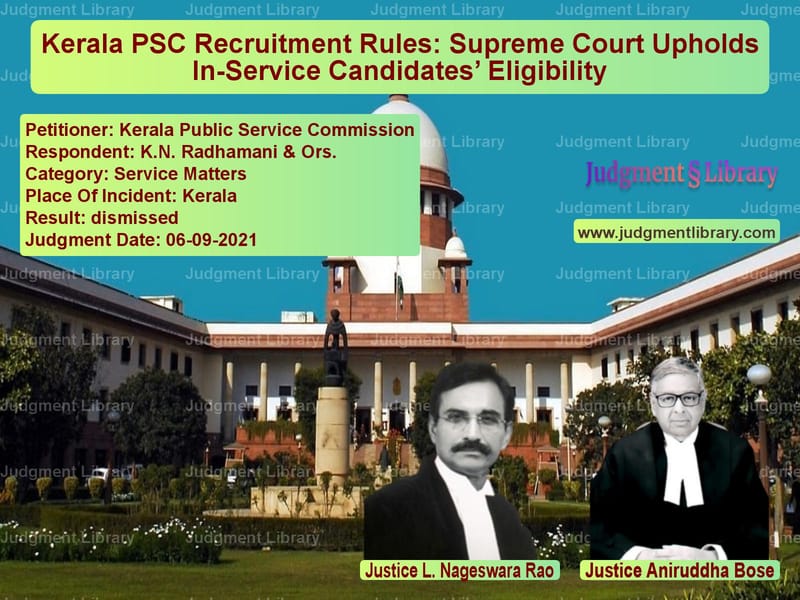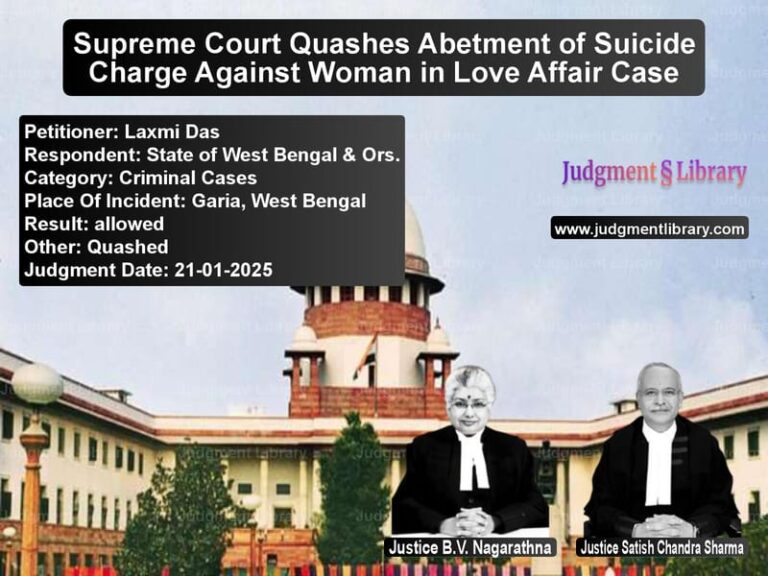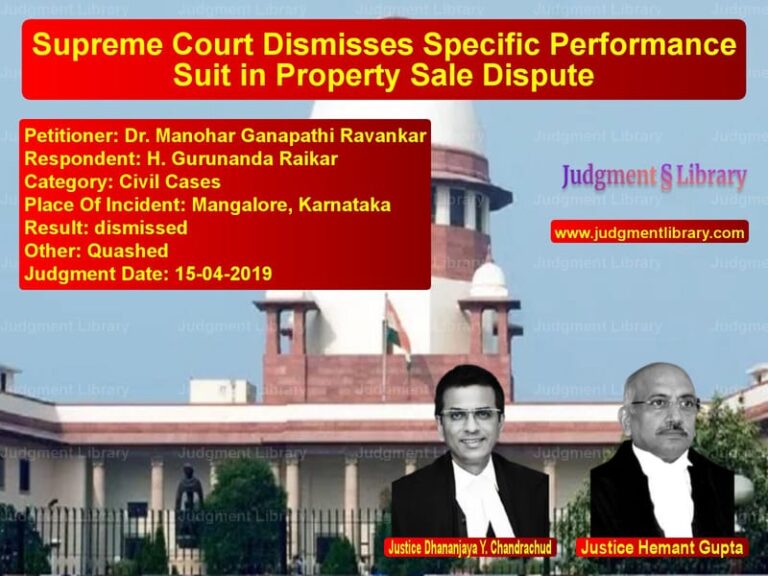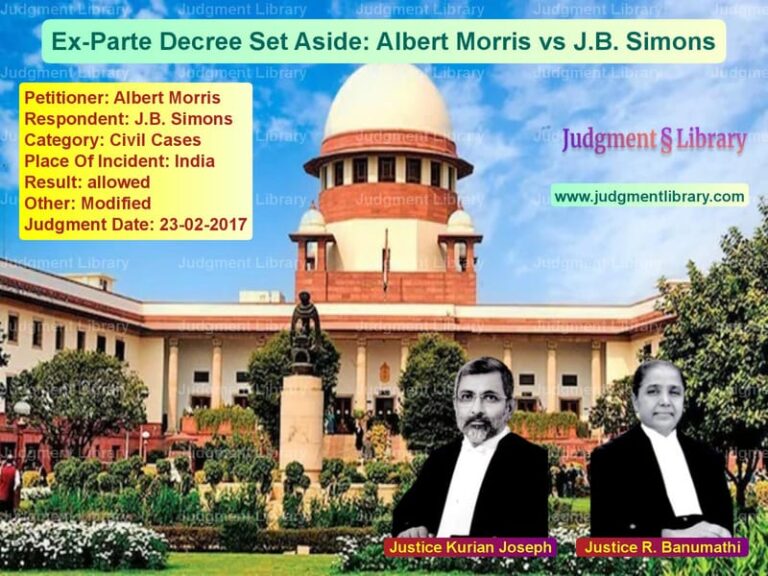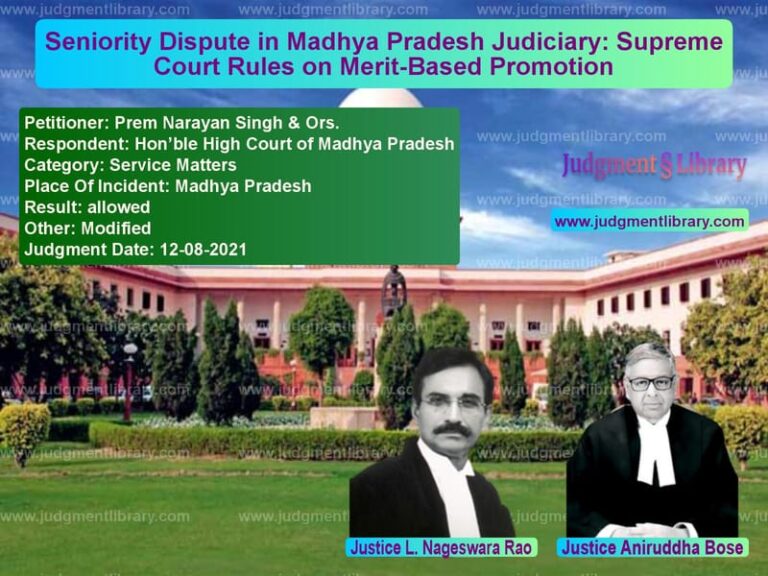Kerala PSC Recruitment Rules: Supreme Court Upholds In-Service Candidates’ Eligibility
The case of Kerala Public Service Commission v. K.N. Radhamani & Ors. involved a dispute over the eligibility criteria for appointment to the posts of Clerk/Cashier in various cooperative banks in Kerala. The Supreme Court had to determine whether in-service candidates required a graduate degree or if an SSLC qualification with experience was sufficient.
Background of the Case
The Kerala Public Service Commission (KPSC) issued notifications in 1999 and 2006 for recruitment to the posts of Clerk/Cashier in cooperative banks. Rule 187 of the Kerala Co-operative Societies Rules, 1969, reserved 50% of vacancies for employees of member societies, requiring a minimum of three years of regular service. However, Rule 186 mandated that for posts with a starting salary of ₹250 or more, candidates must be graduates.
Non-graduate in-service candidates challenged the requirement, arguing that their SSLC qualification, combined with experience, made them eligible. The Kerala High Court’s Full Bench ruled in favor of the in-service candidates, holding that SSLC qualification with JDC and three years of service was sufficient. KPSC appealed the decision to the Supreme Court.
Key Issues Before the Supreme Court
- Whether Rule 186 of the Kerala Co-operative Societies Rules required in-service candidates to be graduates.
- Whether Rule 187 created an exception allowing in-service candidates to apply with an SSLC qualification.
- Whether KPSC had the authority to prescribe additional eligibility criteria beyond what was stipulated in the Rules.
Arguments by KPSC
KPSC contended that:
- Rule 186 applied uniformly, requiring graduation for all candidates applying for posts with a starting pay above ₹250.
- The in-service candidates were attempting to bypass statutory requirements by relying on outdated pay scales.
- KPSC had the discretion to prescribe higher qualifications in advertisements to ensure better standards of recruitment.
Arguments by the Respondents (In-Service Candidates)
The in-service candidates argued that:
- Rule 187 specifically provided an exception for in-service employees, allowing them to apply with an SSLC qualification.
- The Government Orders (GOs) of 1982 and 1988 supported the interpretation that SSLC with JDC and experience was sufficient.
- KPSC’s interpretation of Rule 186 was flawed, as the provision was designed for new recruits and not in-service employees.
Supreme Court’s Analysis
The Supreme Court, comprising Justices L. Nageswara Rao and Aniruddha Bose, examined the rules and government orders governing cooperative bank recruitment.
Key Findings
- In-Service Candidates Were Eligible: The Court held that Rule 187 created a separate category for in-service candidates, making them eligible with SSLC and experience.
- Rule 186 Did Not Apply to In-Service Candidates: Since Rule 187 made an explicit exception, Rule 186 could not be applied to in-service employees.
- KPSC Could Not Prescribe Additional Qualifications: The Court ruled that KPSC could not impose conditions beyond those specified in the statutory rules.
Key Observations by the Supreme Court
“The provisions of Rule 186 relate to cooperative societies in general, whereas Rule 187 specifically deals with in-service candidates. A general rule cannot override a specific rule.”
“KPSC cannot prescribe additional qualifications beyond what is provided in statutory rules. The eligibility criteria must be determined by the applicable regulations and government orders.”
Final Judgment
The Supreme Court ruled:
- The Full Bench decision of the Kerala High Court was upheld.
- KPSC’s appeal was dismissed, affirming that in-service candidates were eligible with SSLC and JDC.
- KPSC was directed to proceed with the recruitment process in accordance with the judgment.
Implications of the Judgment
This ruling has significant implications:
- Clarification of In-Service Recruitment Rules: The decision ensures that in-service candidates are not unfairly excluded from promotions or direct recruitment.
- Limits on PSC’s Discretion: KPSC cannot impose higher educational qualifications beyond what is prescribed in the rules.
- Precedent for Future Recruitment Cases: The judgment will guide recruitment processes for cooperative banks and other government institutions.
Conclusion
The Supreme Court’s ruling in Kerala Public Service Commission v. K.N. Radhamani reinforces the importance of statutory interpretation in recruitment processes. By upholding the eligibility of in-service candidates with SSLC qualifications, the judgment ensures fairness and consistency in government hiring practices.
Petitioner Name: Kerala Public Service Commission.Respondent Name: K.N. Radhamani & Ors..Judgment By: Justice L. Nageswara Rao, Justice Aniruddha Bose.Place Of Incident: Kerala.Judgment Date: 06-09-2021.
Don’t miss out on the full details! Download the complete judgment in PDF format below and gain valuable insights instantly!
Download Judgment: kerala-public-servic-vs-k.n.-radhamani-&-ors-supreme-court-of-india-judgment-dated-06-09-2021.pdf
Directly Download Judgment: Directly download this Judgment
See all petitions in Recruitment Policies
See all petitions in Public Sector Employees
See all petitions in Promotion Cases
See all petitions in Judgment by L. Nageswara Rao
See all petitions in Judgment by Aniruddha Bose
See all petitions in dismissed
See all petitions in supreme court of India judgments September 2021
See all petitions in 2021 judgments
See all posts in Service Matters Category
See all allowed petitions in Service Matters Category
See all Dismissed petitions in Service Matters Category
See all partially allowed petitions in Service Matters Category

